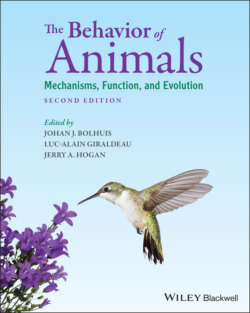Читать книгу The Behavior of Animals - Группа авторов - Страница 70
The concept of motivational energy
ОглавлениеOne attribute of living matter is its activity, the continuous transformation of energy from one form to another. It was natural, therefore, when people began to seek explanations of their own activity, to invoke some concept of energy. And indeed, the earliest scientific theories of motivation invoked concepts such as instinctual impulses (James 1890), libido (Freud 1905, 1915), and psycho-physical energy (McDougall 1923). Within American psychology these concepts became replaced by the concept of drive, but as Lashley (1938) pointed out, drives continued to have all the dynamic properties of the old instinctual urges. A particularly influential theory of motivation was proposed by Lorenz (1937). The core of his theory was an energy variable, action-specific energy, discussed below. For a variety of reasons all these theories were strongly criticized (Hinde 1960), and energy concepts quickly disappeared from most accounts of behavior. However, some authors have pointed out that many of the phenomena that used to be explained using energy concepts are still not accounted for by other concepts: they have suggested that an energy concept may still play a useful theoretical role (e.g., Toates & Jensen 1991; Hogan 1997). We will see some examples later in the chapter.
